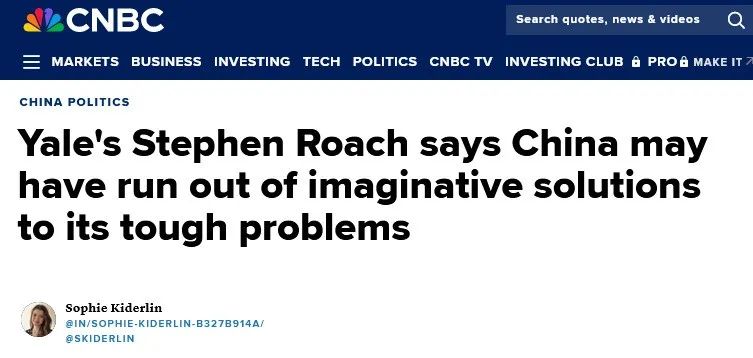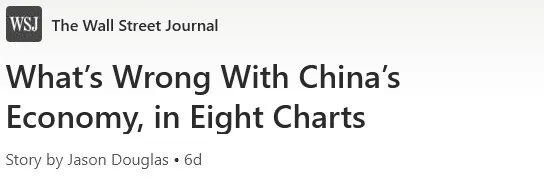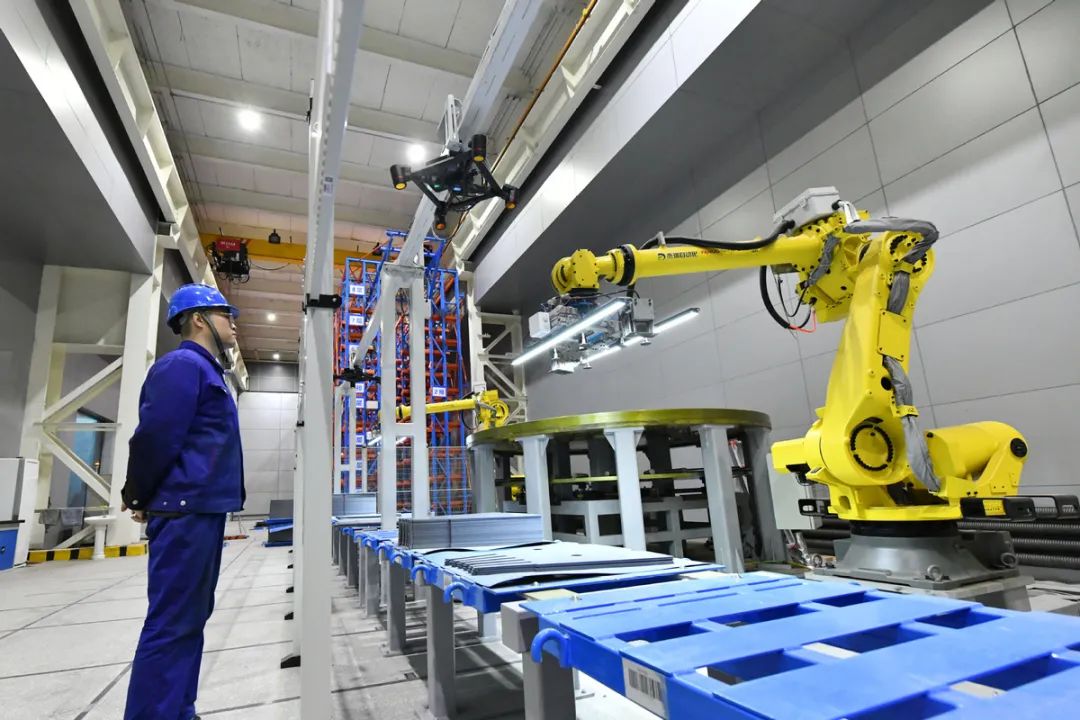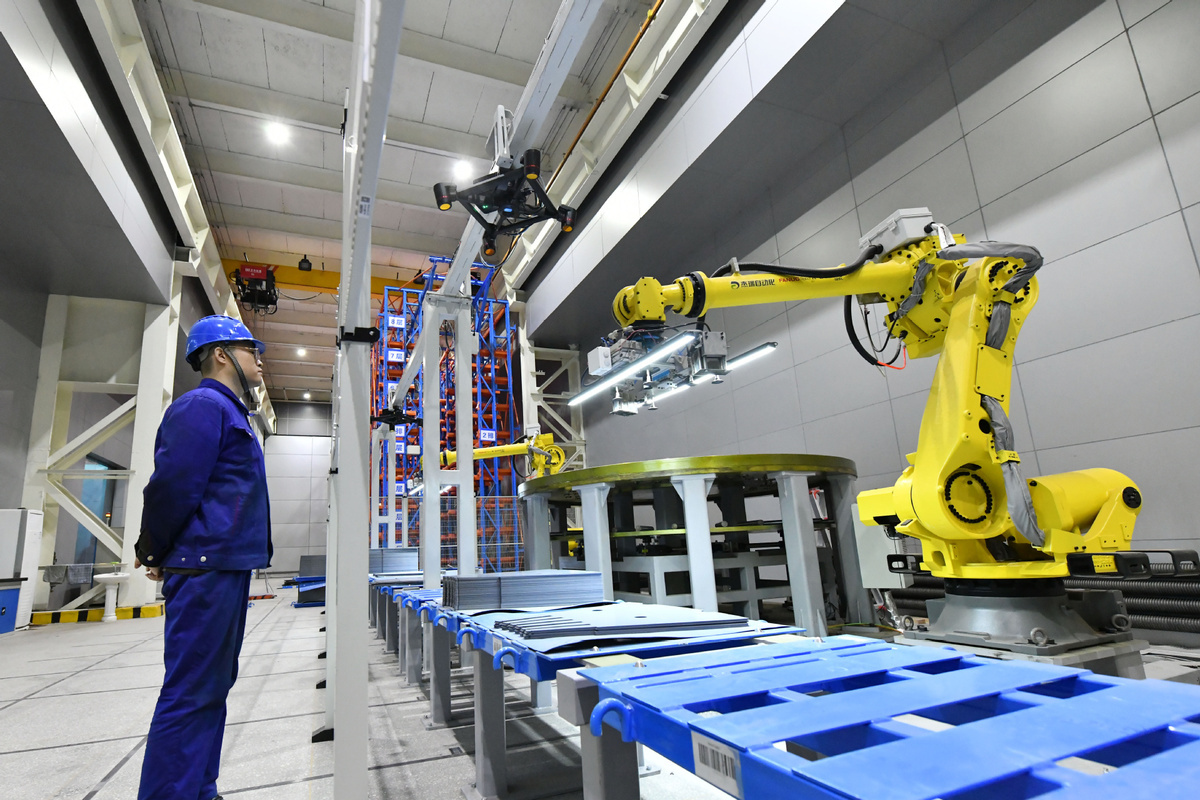風蕭蕭_Frank
以文會友美國學者:為何西方媒體上的中國經濟滿是亂象?因為你看到的隻有偏見

一些西方媒體經常唱衰中國經濟,質疑中國經濟發展成就,刻意歪曲事實,誤導公眾認知。這一現象反映出西方對於中國的看法和敘事基於兩大偏見:一是中國不如西方,二是中國強大之後會給世界秩序造成破壞。事實上,中國製定了合理的經濟增長目標,發展勢頭依舊強勁,並且一直是世界經濟增長的主要推動力,對全球發展的貢獻遠超西方。
在一些美國主流媒體的新聞標題中,中國的經濟發展似乎已陷入困境,比如下麵幾個例子:



……
這些報道以及類似的新聞都在刻意引導公眾認知,讓人們相信中國正步入經濟不確定的黑暗深淵,將對中國、中國人民及整個國際社會造成深刻影響。但我們必須對這種戲劇化的報道持懷疑態度。為什麽?因為我們通過梳理西方媒體對中國的硬新聞報道就不難發現,西方有關中國的敘事都基於以下兩大主要觀點:
第一個觀點,中國不如西方,因此中國所做的一切必然是不完善、不恰當,甚至不好的。
比如,中國近年來推出了首款自主研製的大型客機C919。一位“專家”表示,中國稱該飛機為“自主研製”是無稽之談,因為“C919的與眾不同之處在於,所有能讓它飛上天的部件,幾乎沒有一樣來自中國”。然而事實上,飛機的大部分部件還是中國生產的。因此人們不禁要問,中國的航空業之所以受到這樣不公正的批評,是不是因為它尚無能力製造出自己的飛機發動機或其他主要部件呢?
如果有一天,中國擁有這種能力了,接下來西方媒體又會怎麽說呢?
接下來他們馬上就會拋出第二個觀點:中國一心要摧毀西方建立的世界秩序,如果中國成功了,將給所謂的“自由世界”帶來巨大破壞和災難。平時就對中國少有正麵評價的美國外交關係委員會近日表示,中國會支持符合其利益的國際行動,但會試圖“破壞”與其目標不一致的政策。就算它說得沒錯,可是美國自己呢?美國對待國際共識的態度經常是“合則用,不合則棄”,這又當如何評價?近期美國多次阻止聯合國有關加沙危機的停火提案的通過,就是它冥頑不化的最新例證。
換句話說,中國和其他國家一樣,有權在全球範圍內推動和捍衛其國內和國際倡議。
總之,你在西方媒體上一定會讀到關於中國經濟的種種“亂象”,這時隻需牢記這兩大偏見,即“他們不如我們”和“他們要對付我們”,就見怪不怪了。
我們不妨換個視角,來看看國際貨幣基金組織(IMF)今年1月份發布的《世界經濟展望》。文件顯示,由於“中國、美國以及大型新興市場和發展中經濟體”的增長預期被上調,全球經濟增長率預計將在2024年達到3.1%,並在2025年1月達到3.2%。
IMF預計中國2024年的GDP增長率為4.6%,遠高於西方七國集團中任何一員,例如美國增長率預計僅為2.1%。盡管如此,路透社卻還表示4.6%的增長率根本算不上好,認為中國經濟可能無法“在後疫情時期實現強勁、可持續的反彈”。然而對於美國2.1%增長預期,路透社卻大加讚賞,認為“由於美國經濟前景的改善抵消了歐元區的疲軟,今年全球經濟的表現有望比幾個月前預期的更好......”
IMF不得不提醒人們,“在過去的15年裏,中國一直是世界經濟增長的主要推動力,貢獻了全球名義GDP增長的35%,而美國隻貢獻了27%”。

3月5日,中國2024年政府工作報告發布,其中預計今年中國經濟將增長5%。這一數字顯然是合理的,但卻遭到了一些西方媒體的惡意質疑。
就在上周,中國駐紐約總領館副總領事錢進就美國輿論場唱衰中國經濟作出回應。他表示,中國經濟穩中向好、長期向好的基本麵沒有改變,高質量是中國經濟發展的鮮明主題。他還援引世界知識產權組織2023年發布的報告指出,中國是全球百強科技創新集群數量最多的國家。
有任何西方主流新聞機構對錢進的言論進行報道或分析嗎?當然沒有。原因很簡單,因為他所傳達的信息與前述有關中國的負麵報道大相徑庭。所以,下次閱讀有關中國經濟的文章時,請務必注意是出自哪家媒體,想想它有什麽目的。如果是一家西方媒體或智庫,那麽你可能需要再到別的地方看看其他觀點。
本文原文發表在中國日報國際版 "Western media piling on the gloom withintent"
出品:中國日報中國觀察智庫
Western media piling on the gloom with intent
By Anthony Moretti | China Daily Global | 2024-03-08
 A staff member observes the operation of intelligent equipment at the Harbin Electric Machinery Co Ltd in Harbin, Heilongjiang province, Feb 22, 2024. [Photo/Xinhua]
A staff member observes the operation of intelligent equipment at the Harbin Electric Machinery Co Ltd in Harbin, Heilongjiang province, Feb 22, 2024. [Photo/Xinhua]
According to the headlines of some mainstream US media, China's economy is in trouble. Here are just a few examples:
CNBC: "China may have run out of imaginative solutions to tough problems"
Time magazine: "China's economic slump is here to stay"
Wall Street Journal: "What's wrong with China's economy, in eight charts"
These and other stories like them want you to believe that China is heading toward a period of deep, dark economic uncertainty, and that the repercussions for the country, its people and the global community are going to be significant. You should be skeptical of such dramatic reporting, because the Western narrative about China is based on two pillars that are evident in almost all hard-news reporting about the country.
The first pillar of that narrative is that China is not as good as the West, and therefore anything it does must be incomplete, inadequate or bad.
China's recent rollout of its C919 commercial airplane, the first domestically built airliner, is an example. One expert said China's assertion that the aircraft is homegrown is nonsense because "the C919 is unique in that almost nothing that keeps it in the air is from China". However, with a majority of the aircraft's components coming from China, one is left to wonder if the country's aviation sector is being unfairly criticized because it has not yet built its own airplane engines or other major parts.
Once it does, then what?
The second pillar of the Western narrative: China is determined to destroy the Western-created world order, and if it succeeds, the damage will be immense and painful for the so-called free world. The US Council on Foreign Relations, which rarely has anything positive to say about China, recently suggested that China will support international efforts that align with its norms, but will try to "undermine" policies that do not support what it seeks to accomplish. Even if that statement were true, then what are we to say about the United States and its willingness to dismiss global ideas that it does not like? Blocking cease-fire resolutions emanating from the United Nations relating to the crisis in Gaza is the most recent example of US intransigence.
Put another way, China has as much right as any other nation to promote and defend its domestic and international initiatives across the world.
Those two pillars of bias, which could be summarized as "they are not like us" and "they are out to get us", should be kept in mind when you read Western-media suggestions of the inevitable economic chaos that will affect China.
Let's turn to the World Economic Outlook, published in January by the International Monetary Fund, for a different perspective. That document suggests that global economic growth is pegged at 3.1 percent for 2024 and 3.2 percent for 2025 because of "upgrades" to the economic forecast for "China, the United States, and large emerging markets and developing economies".
China's GDP growth in 2024 was projected by the IMF at 4.6 percent, far higher than any Western-based G7 country. (The IMF projects that US growth will be 2.1 percent.) Nevertheless, Reuters has suggested that 4.6 percent is simply not good enough, saying that China may be unable to "mount a strong and sustainable post-COVID pandemic bounce". Yet Reuters is full of praise for the prospects of the US realizing 2.1 percent growth, concluding that "the global economy is on course to hold up better this year than expected only a few months ago as an improved outlook in the United States offsets eurozone weakness".
The IMF has had to offer the reminder that "over the past decade and a half, China has been the main driver of the world's economic growth, accounting for 35 percent of global nominal GDP growth, while the United States accounted for 27 percent".
China's annual Government Work Report, delivered on Tuesday, suggests that the Chinese economy will grow by 5 percent this year, a figure that should not be considered unreasonable.
Just last week, Qian Jin, the deputy consul general of China in New York, issued an important statement about China and its economy. Qian said China's economic development remains "steady", with "high quality" being the theme of such development. Furthermore, quoting from a 2023 World Intellectual Property Organization report, Qian said China is home to "the world's largest number of top 100 science and innovation clusters".
Did any major Western news agency offer reporting or analysis of his remarks? Of course not, because such information runs counter to the aforementioned negative narrative about China.
The author is an associate professor in the Department of Communication and Organizational Leadership at Robert Morris University in Pennsylvania.




